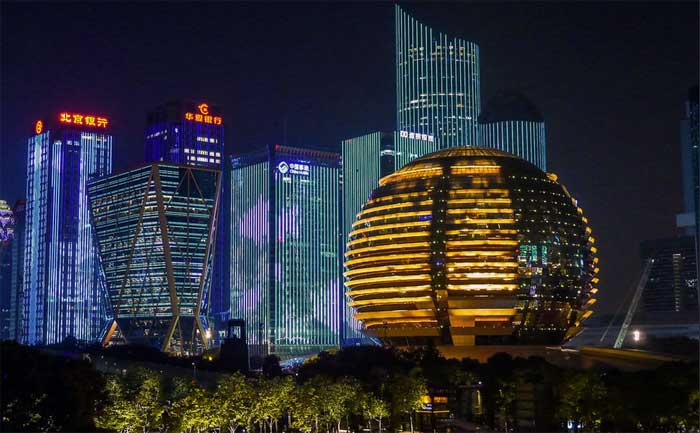The People's Republic of China practices the system of people's congress. China's Constitution stipulates that all power in the People's Republic of China belongs to the people, and the organs through which the people exercise state power are the National People's Congress and the local people's congresses at different levels. Local people's congresses at different levels are elected in a democratic way, and are responsible to the people and subject to supervision by the people. Deputies to the people's congresses at county and township levels are elected directly by their constituents. All citizens of the People's Republic of China who have reached the age of 18 have the right to vote and stand for election, regardless of ethnic status, race, sex, occupation, family background, religious belief, education, property status or length of residence. Such citizens make up 99.97 percent of the population who are 18 years of age or over. Over the past dozen years, more than 90 percent of the electorates participated in the four direct elections of deputies to the people's congresses at county and township levels. Deputies to the people's congresses of the provinces, autonomous regions, municipalities directly under the Central Government, autonomous prefectures and cities divided into districts are elected by the people's congresses at the next lower level. Deputies to the NPC are elected by the provinces, autonomous regions and municipalities directly under the Central Government, and by the armed forces. Candidates for deputies to the people's congress at various levels are nominated on the basis of electoral districts or electoral units. The political parties and various people's organizations may either jointly or separately recommend candidates for deputies. Any voter or deputy may, with at least 10 people supporting his proposal, also recommend a candidate. The number of candidates for deputies shall be greater than the number of deputies to be elected. The elections shall be by secret ballot.
The NPC is the highest organ of state power. It exercises the state power of amending the Constitution and supervising the enforcement of the Constitution; enacts basic laws of the state; elects and decides on the choices of the leading personnel of the highest state organs of China, including the President and Vice President, the choice of the Premier of the State Council and other component members of the State Council; elects the Chairman of the Central Military Commission and decide on the choice of other component members of the Central Military Commission; elects the President of the Supreme People's Court and the Procurator-General of the Supreme People's Procuratorate; examines and approves the plan for national economic and social development and the report on its implementation; examines and approves the state budget and the report on its implementation; and make decisions on other important issues in national life. The NPC is elected for a term of five years. It meets in session during the first quarter each year and is convened by the NPC Standing Committee.

